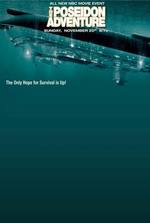 Novelist Tess Gerritsen talks about the difficulties of writing sex. She offers a lot of great advice, but the bottom line is:
Novelist Tess Gerritsen talks about the difficulties of writing sex. She offers a lot of great advice, but the bottom line is:
Ask yourself, as a writer, what your love scene is supposed to accomplish. If
it’s just to show that your hero is a normal guy having sex, that’s about as
interesting as watching him eat bologna sandwiches. No, the best sex scenes are
those that accomplish something far more profound. They offer us a deeper
understanding of character, or show us emotional awakening or healing.
I agree with her. She was brave enough to share an example from one of her books to prove her point, so I will, too. This one comes from MAN WITH THE IRON-ON BADGE:
I guess
something I learned from “Mannix” was true. Being a private eye really is an
aphrodisiac to women. Carol had never attacked me like that before.
I’m afraid the surprise and excitement were too much, because I came in about three minutes. But I
don’t think Carol minded; it calmed me down and allowed me to concentrate real
hard on getting her off. And believe me, it took my complete attention.
Pleasing a woman, especially Carol, isn’t easy and with me, at least, there’s a
lot of potential for embarrassment and humiliation.She rewarded me for all
my hard work with a nice, squealing, writhing orgasm that nearly broke my nose
on her pubic bone, but I didn’t mind. I even jumped in, literally, to enjoy the
last few squeals of it with her.It was so dark, and things happened so fast, she never saw my cuts and bruises, so she mistook my
occasional groans of pain for pleasure.Carol fell right to sleep afterwards.
Between the sex, the pain, and the things on my mind, I didn’t get as much sleep as I would have
liked. But I get laid so rarely, I’m willing to sacrifice just about anything
for it, especially sleep, when I usually dream about having sex anyway.
While the scene is explicit, more by implication than actual description, it’s not about the choreography or body parts. It’s about attitude and character — or, at least, I hope it is. To me, that’s how you get around the pitfalls of writing the sex scene, unless the point of the scene is to arouse the reader.
By the way, I’ve written my share of awful sex scenes. I honed my "craft" in college. My girlfriend was an editorial assistant at Playgirl and she got me a gig writing sexually-explicit "Letters to the Editor" for the grand sum of $25-a-letter (Gasp! You didn’t know they were fake? You probably think Penthouse letters are real, too). I actually had a lot of fun writing them (often in class, which got me some strange looks from the people around me) and it helped me learn to write in different voices for different characters. Plus the letters got my girlfriend all excited, but that’s another story…




